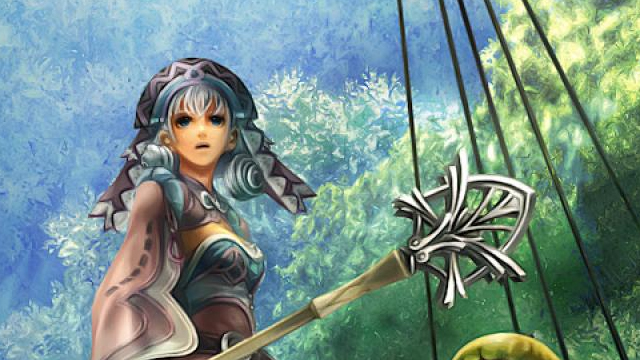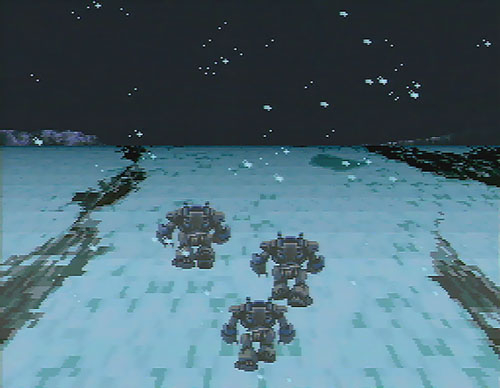
The Japanese term “Kyoiku mama” has no true counterpart in the English language. The closest English can get to translating “Kyoiku mama,” which describes a mother who pushes too vigorously for her child’s academic success, is “education mother.” It’s a flat translation that doesn’t remotely encapsulate the meaning of “Kyoiku mama,” and it’s only one of many phrases, words, and ideas that are nearly impossible to convey outside of Japan. That’s how languages work, though; whether in the United States, Japan, France, or any other nation, there are bits and pieces of language and culture that another nations’s tongue can’t quite replicate. Even within the borders of a country there are colloquialisms that are not universal. Just ask anyone outside of California (and even more specifically, the Bay Area) what the heck “hella” is supposed to mean, for example!
The people who know this hard truth all too well are video game localizers. These fine men and women are tasked with taking the plot and writing of a given title and translating it into another language. In the case of the US, that language is English, and more often than not, the game is coming from Japan. Not exclusively, of course, but predominantly, and over the years it has created some… interesting results. When NES exploded onto the market, localization was still in its formative years. Gems from the era include Snake in Metal Gear proclaiming, “I feel asleep,” and the end screen of Ghostbusters which declares, “Conglaturation!!!” Some of this is just poor translation, of course, as converting one language to another has been going on for centuries. Still, there’s a charm to these early days, where so many of these oddball pieces of writing have become ingrained in video game culture.
Beyond the need to translate vocabulary, however, are other game issues like difficulty and content. Super Mario Bros. 2 was infamously scrapped from the release calendar in the US because Nintendo feared it would be too difficult for American players. The world became a better place in spite of Nintendo’s pessimism, as players were graced with a sublime substitute Super Mario Bros. 2 (or Super Mario Bros. USA in Japan) and its unique brand of platforming. Unfortunately, these doubts of competency don’t always yield such fortuitous results. Final Fantasy games have been notorious over the years for curbing difficulty in order to appease the perceived weakness of American and European gamers, lowering enemy encounters and altering other game elements. Even Majora’s Mask was tweaked to be more accessible; the Owl Statues for saving weren’t included in the original Japanese release of the game (ironically, the addition was so sensible that later Japanese copies of Majora had the feature added in).

If there’s anything to take away from all this, it’s that localization isn’t easy. For some, it’s not easy because they don’t quite know what they’re doing (see some of the examples above); for others, it’s because of the artistic nature of the task. Localization is an art. It requires the translator to scrutinize every word and line, every cultural reference, and every bit of plot, all in order to as respectfully as possible make the game work in another country, in another language. It’s almost mind-boggling to think that anyone could possibly sift through so much content and be able to put out a cohesive experience. There’ve been quite a few games in recent memory that have received stellar translations, including Xenoblade, but fans really have to give it up for the crew behind the Mario & Luigi games.
There are very few video games that are outright gut-busting, but the Mario & Luigi series is one of them. Every installment has been a riot, with a bevy of memorable characters and moments across three handhelds. What makes Mario & Luigi’s humor stand out so much is that the translators had to take what was funny in Japanese and make it work in English. Thousands of words, hundreds of lines of dialogue, all made not just palatable to a Western audience, but mouthwatering. A far cry from “I feel asleep” over twenty years ago. More importantly, though, is that games like Mario & Luigi represent a shift in the culture of video game development. Better translations mean better respect for the source material, and the more seriously video games are treated by everyone involved, the better experiences everyone gets to enjoy.
As inspiring as professional localization had become, fan efforts to translate games are equally impressive and important. Diehard players are often left in the wind when a sequel is released overseas, but is never greenlit for release abroad. Games like Mother 3 and Ace Attorney Investigations 2 remain no-shows here in the US, which is a terrible blow to players who want to know what the next adventure is all about in a series they love. Luckily, there’s been a surge of translation efforts made by fans themselves, propelled forward to unheard of levels by the propagation of the Internet, in particular. The web has brought fans together across the globe to lend a hand in making games playable when publishers and developers fail to step up to the plate.
Localization will continue to evolve and grow along with the world of video games. More and more international markets that never traditionally showed much productivity in the gaming market have been throwing their hats into the ring. As such, the need for talented translators will only increase as time goes on. Fortunately, fans and pros alike are ready for the challenge. The video game industry wouldn’t be what it is today if translators hadn’t made games like The Legend of Zelda, Final Fantasy VI, and Chrono Trigger playable on the international stage, warts and all. It’s exciting to think what the next legendary title will be-and where it might come from.




 ShareThis
ShareThis







It’s interesting to see how localization can also be influenced by cultural differences. For example, I can think of several old Japanese games with overt sexual references that were toned down or changed entirely for American audiences. Conversely, Resident Evil 4 had a lot of its blood toned down for Japanese audiences.
On the difficulty side, I remember picking up Final Fantasy IV for DS a few years back. The DS version was amped up considerably from the SNES version (and possibly even over the original Super Famicom version) but to be honest I felt in that instance it was too much. I died a lot just due to bad luck, and grinding characters to level up seemed to do little to help. The regular enemies of the last dungeon were so hard that I ended up just running away until I made it to the endboss.